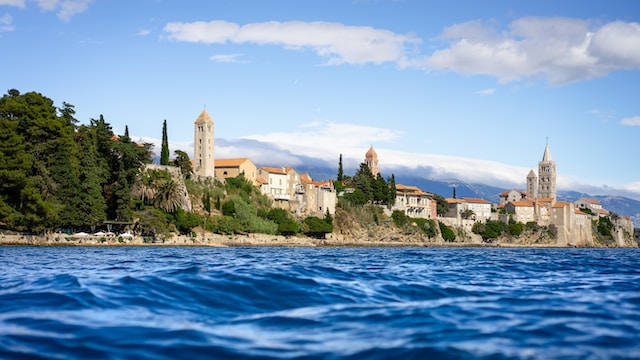This is a country located in southeastern Europe, on the southern end of the Balkan Peninsula. The country’s largest city and capital, Athens, with a population of about 10.7 million. The nation is known for its rich history and cultural heritage, with landmarks such as the Acropolis, Parthenon, and ancient ruins of Olympia and Delphi. It is also famous for its stunning islands, beautiful beaches, and Mediterranean climate. The official language spoken by the people is Greek and the currency is the euro. This country is a member of the European Union, the United Nations, and NATO. Its economy is based on services, tourism, and agriculture. The territory has a parliamentary republic system of government, with a President as the head of state and a Prime Minister as the head of government. Utilities such as electricity, water, and internet can also add to the costs. The standard of living within the territory can be affordable for those on a budget, especially if you are willing to live outside of major cities and tourist areas. However, it’s important to keep in mind that expenses can vary greatly depending on one’s lifestyle and spending habits.

If you are considering relocating to this territory, there are things you need to know about this European country. Most important is its cost of living. This article provides information on the prices of essential needs in the country.
These other articles might interest you:
Cost of living in this country
The standard of living in any Greek city usually differs depending on the region and city one chooses to reside. Generally, the quality of living in this territory is lower than in many other European countries, although it can still be relatively high in certain areas.
Accommodation
Housing tops the list of expenses incurred by residents, with rent prices varying greatly depending on location and the type of accommodation. In Athens and other major cities, rent prices can be quite high, while smaller towns and villages may offer more affordable options. The cost of utilities including energy, water, and internet can substantially raise living expenses.
Food and groceries
Food prices in the country are generally reasonable, with fresh produce, seafood, and locally sourced products being relatively affordable. Eating out within the cities can also be relatively inexpensive, with many traditional Greek restaurants offering reasonably priced menus.
Transportation
Transportation costs here are also generally affordable, with public transportation being relatively affordable in most areas. However, taxis can be a bit more expensive, especially in tourist areas.
Healthcare
The country has a public healthcare system in the country; however, to use it, residents must be registered citizens or those with a permit. To access medical care, employed expats must be registered as citizens or legal residents. The expense of purchasing insurance depends on the kind.
Utilities
Paying for power, gas, and water fluctuates relying on the size of a loft and what it is utilized for. The typical monthly cost for a one-bedroom apartment is cheaper on the outskirts of bigger cities. Internet connectivity and local calls are monthly fees paid by residents.
Recreation
This includes purchasing tickets for films, theater shows, and games. A ticket to the movies can cost lesser than 9 USD, while a ticket to a theater show can cost even more.
If a person is prepared to live outside of large cities and tourist destinations, the overall cost of living in this territory can be kept within a reasonable range. Individuals who are working with a limited budget may find this to be an appealing option because of this. However, it is essential to keep in mind that the amount of money you will spend depends heavily on your lifestyle and how you choose to spend your money.




